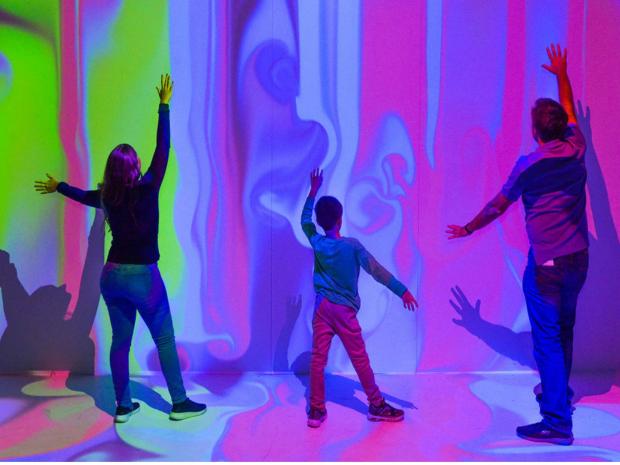- Academics
Live Experience Design

This course is no longer available
Key Takeaways
Designing exhibits for museums can be tricky as they need to be many things at once: educational, entertaining, accurate, intuitive, etc. They need to be approachable for all museum-goers: children, adults, English-speakers and non-English speakers, tech savvy and tech averse, readers and non readers, mobility-impaired visitors, etc.
Through their work at the American Museum of Natural History, Brett and Elie have had to face these challenges when developing media pieces for a variety of permanent and traveling exhibitions. In this class they will present case studies on projects they have developed and the challenges and surprises they faced. They will share some guiding principles to keep in mind when developing exhibits for the public, and then present a brief to the students, where they will design and develop an exhibit on a given topic using a specific technology. Their projects will then be tested by a sample of museum-going individuals, and discussed and critiqued to see what worked well and what could be improved.
Key Takeaways
- Learners who complete at least 70% of the course requirements will receive a badge of completion for this course
- Students will learn a framework (conceptual, schematic, production) that can be used when designing and creating complex projects.
- They will also have a working prototype by the end of the course in addition to technical experience gained through designing and developing their project from start to finish.
Who Should Attend?
Anyone with a desire to create installations for public spaces such as museums, trade shows, pop-up installations, or other public spaces like corporate lobbies, retail environments and storefronts.
Teams will be composed of designers and developers. Team members will be formed based on experience to make sure all projects can be successful.
Helpful experience includes:
- Programming in Unity, Processing, openFrameworks, or similar.
- Design experience using Adobe tools, Figma, or similar.
- Content research, organization, vision.


